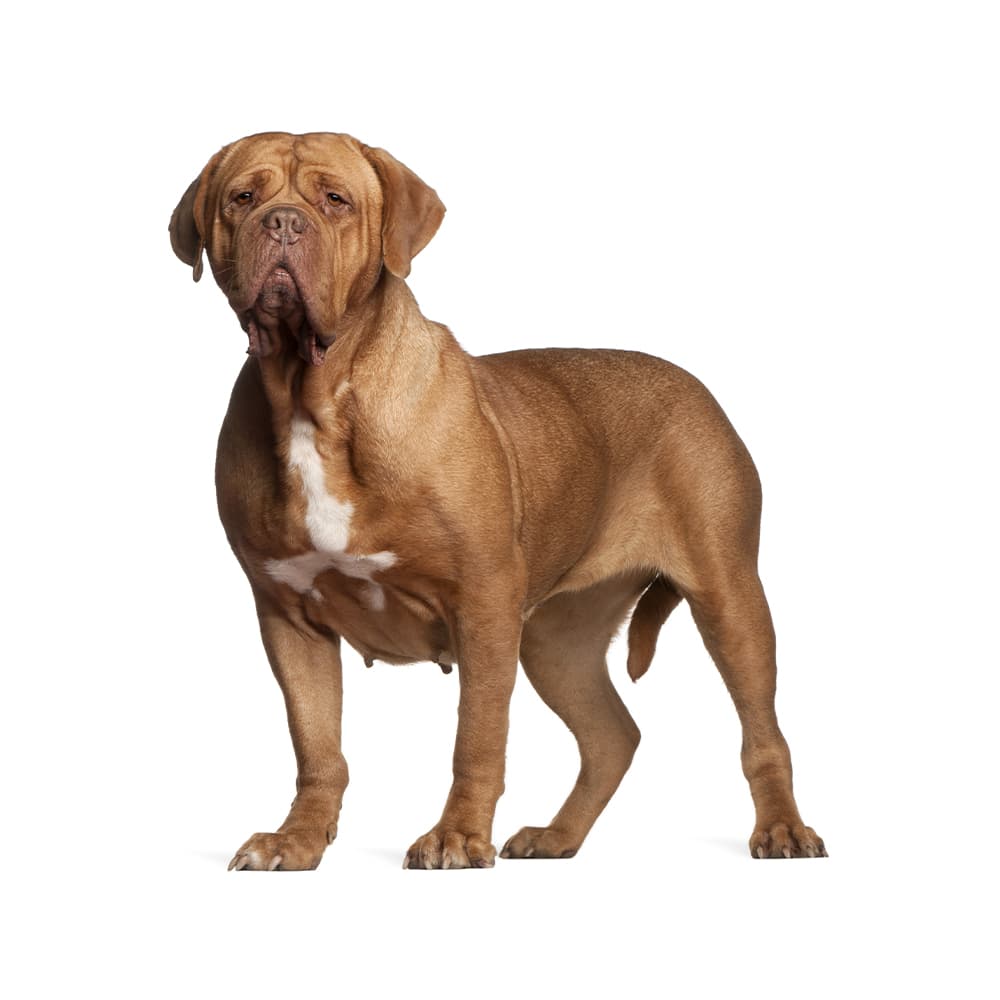Discover your dog's connection to this breed and 200+ others


Discover your dog's connection to this breed and 200+ others



The Dogue de Bordeaux, also known as the French Mastiff, is one of the oldest French dog breeds with a history dating back to at least the 14th century, if not earlier. These dogs were traditionally used for a wide variety of purposes such as hunting large game, herding livestock, protecting homes, and even fighting in wars or in the arena. The life expectancy of a Dogue de Bordeaux is relatively short compared to other breeds, typically ranging between 5 to 8 years. This shorter lifespan is due in part to the breed's size, as larger dog breeds generally have shorter lifespans than smaller ones. They were likely bred with local dogs in Bordeaux, France, resulting in their distinctive appearance. The breed has a relatively low genetic diversity due to historical population bottlenecks and selective breeding, which can lead to inherited health conditions.
The Dogue de Bourdeaux is a brachycephalic breed that can suffer from breathing problems, as well as degenerative myelopathy and progressive rod-cone degeneration. This breed is also at risk for heart disease, cancer, canine multifocal retinopathy, and the skin disorder pachyonychia congenita.
Dogue de Bordeaux is known for being a calm, patient breed that forms strong bonds with their family. They are protective yet gentle, especially with children. Despite their imposing appearance, they are known to be good-natured and extremely loyal. However, they can be wary of strangers and may require socialization from a young age. Their large size and energetic nature mean they are better suited to homes with a yard or large living spaces.
A canine genetic lineage is a group of individuals or entire breeds that descended from common ancestors predating modern breed formation. Often these lineages are associated with a ‘type’ of dog with a unique historical working role and associated behaviors (e.g., herding, scent hunting, etc.).
Mastiff and bull-type breeds have strong, muscular builds. Both mastiff and bull-type breeds are protective and loyal, which are essential traits for this breed as guardian dogs and as companions. Although they appear imposing, many of these breeds are known for their gentleness and affection towards their families. They are a great example of loyal guardian dogs.
Example breeds with ancestry from this lineage include French Bulldog, St. Bernard, and Bullmastiff.
According to the AKC, the Dogue de Bordeaux is the most ancient of French dog breeds, and has been in existence even before the country of France was formed.
France was formerly known as Gaul. Some believe that the Dogue's ancestors were introduced into Gaul by Julius Caesar's Roman legions in the first century B.C.
The first Dogue de Bordeaux was imported to the United States around the 1980s.
https://www.akc.org/dog-breeds/dogue-de-bordeaux/
https://www.lyonhillsbordeaux.com/
https://www.ukcdogs.com/dogue-de-bordeaux
https://vgl.ucdavis.edu/breed/dogue-de-bordeaux
https://www.fci.be/Nomenclature/Standards/116g02-en.pdf
Recommended by top vets with decades of experience
21 breeds
64 genetic health markers
50 genetic trait markers
